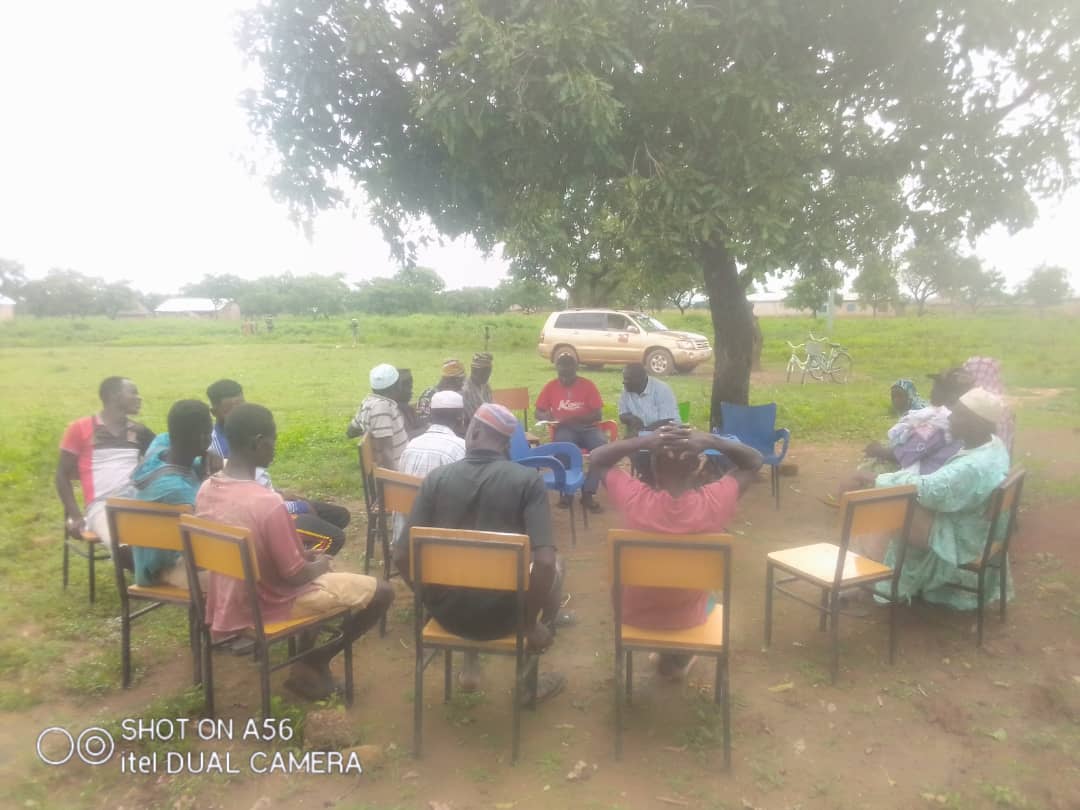In the serene village of Kpatiya in Northern Ghana, the struggle for clean water was a daily ordeal. Community members, young and old, would embark on long, dusty journeys to fetch water from distant, often contaminated sources. This relentless struggle, however, would soon be off pass thanks to the efforts of a remarkable organization – CIWED Ghana.
CIWED, short for Community Initiative for Water and Environmental Development, arrived in Kpatiya community with a vision to transform the lives of its inhabitants. Our mission was clear: to bring clean, accessible water to the village. Little did we know that our journey would not only bring water but also empower the community in many ways they never imagined.
In partnership with Japan Embassy in Ghana, CIWED embarked on the ambitious project of promoting sound learning environment, that is to construct a six (6) unit class room block with axillary facilities at/in kpatiya community in central Gonja district in the savana region of Ghana leading to the construction and installation of boreholes in community. The idea was promising, but success depended on more than just drilling holes in the ground. Recognizing the importance of community involvement, CIWED introduced the concept of a Water/Borehole Management Committee (WBMC).
The WBMC consisted of eleven members, carefully selected to represent different segments of the community. They were farmers, teachers, elders, and women, each with a unique perspective on the community water needs. CIWED’s commitment to sustainable development was evident in the next step – capacity building.
Through a series of workshops and training sessions, CIWED empowered the WBMC members with the knowledge and skills necessary to play their roles effectively. They learned about borehole maintenance, water quality testing, financial management, and the importance of community engagement. The members eagerly embraced their roles, seeing the potential for positive change.
As the boreholes begin construction, pumping clean water will lead to a transformative shift to occurred in Kpatiya. They will no longer have to walk for miles under the scorching sun; clean water will now be available just a stone’s throw away. Children will have more time for school, and adults for income-generating activities. Waterborne diseases will decrease, and health improved. This will be a profound change.
The WBMC’s dedication became the linchpin of this transformation. They will ensure that the boreholes remain in optimal condition. Routine maintenance, timely repairs, and water quality checks became their forte. In emergencies, they will act swiftly, making the boreholes resilient to challenges.
The impact rippled through the community. Women who had once spent hours fetching water will now have time to engage in entrepreneurial ventures. Farmers will increase crop yields as they now have a reliable water source for irrigation. The children of Kpatiya began to dream bigger, knowing that education is within their reach.
With time, the WBMC will develop an innovative ways to sustain the boreholes. They promised to initiate community fundraising drives, collected nominal fees for water usage, and also to establish a community garden. These efforts not only ensure the boreholes’ longevity but also foster a sense of ownership and responsibility within the community.

